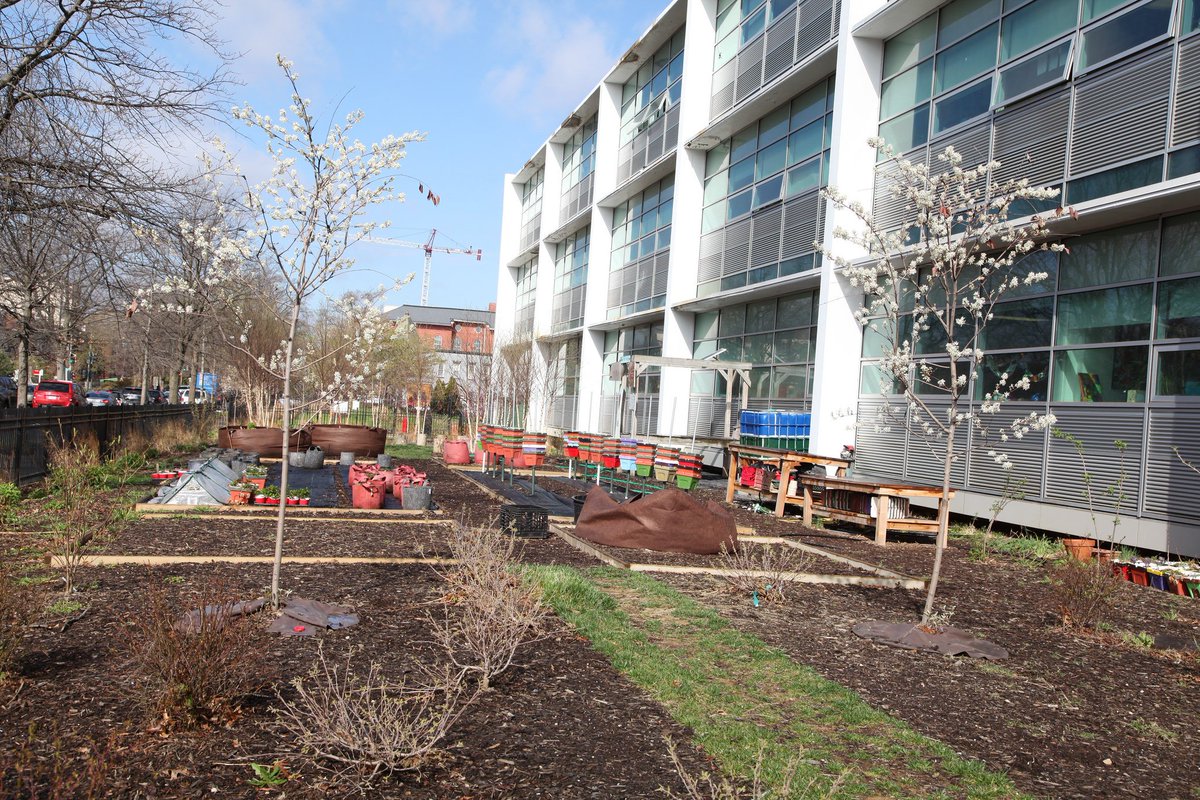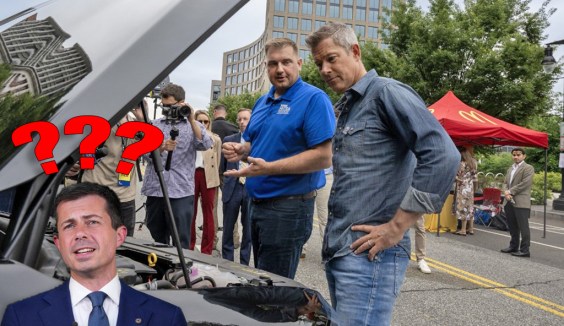For urban schools with limited land area, teacher demands for car parking often conflict with kids' needs for space to let loose and play. Too many times teacher car storage wins out, depriving students of places where they can get much-needed physical activity.
When that happens, it also hurts the surrounding neighborhood. Instead of a shared public resource, they get an asphalt lot that sits empty much of the time.
A community coalition in D.C. has proposed a different way of doing things. The idea is to let kids have more play space at school by reserving on-street parking for teachers, who would use the curb space at times when fewer residents need it.
Will Handsfield at Greater Greater Washington explains how it came together for one school:
Stuart-Hobson Middle School in Capitol Hill was going through a modernization in 2012, and the school community wanted to deliver a full-sized athletic field as part of the project. However, a significant portion of the school grounds was being used as a parking lot for employees.
District Department of Transportation (DDOT), DC Public Schools (DCPS), and the Department of General Services (DGS) arranged a sensible compromise: they would reserve the spaces immediately bordering the school for faculty and staff from 8 am to 4 pm. The spaces used were previously designated for the residential parking permit (RPP) holders.
In this otherwise residential area, a large number of RPP holders aren’t present during the day, instead taking their vehicles all over the region for work and errands. By the time they get home around 5 or 6 p.m., the school staff have left those spaces. It works well due to the temporal needs of teachers and residents, which are nearly inverse.
Handsfield and others are working with Council Member Charles Allen to take this policy citywide. Within three blocks of schools, the city would reserve some on-street parking for teachers during the day.
The bill also creates better incentives for school employees to take transit or bike to work, while eliminating parking mandates, Handsfield reports:
An important, but controversial element of the law: DDOT (or perhaps the DC Council directly) will set a price for school parking zone passes.
Funds collected from selling passes will be used to administer the program, and go into a Transportation Demand Management (TDM) fund at the same school from which fees were raised. Other teachers who don’t drive to school would be eligible to receive these TDM funds to offset the cost of transit or biking to work.
Parking minimums that currently exist for DCPS schools would be rescinded, since there would now be a pathway to satisfy parking demand by sharing on-street spaces.
Using available street parking instead of building garages will save the city money too, writes Handsfield. At D.C. schools, the average cost of a structured parking space is $49,000 to $125,000, he reports.
One argument against the bill is that it creates an expectation that everyone should get reserved on-street parking around their workplaces. It also depends on a certain number of residents car commuting each day, leaving on-street parking available to teachers.
I contacted Donald Shoup, author of The High Cost of Free Parking, to get his take on the D.C. proposal. He thinks it's worth pursuing.
D.C. wouldn't be the first place to establish non-resident parking permits, which can help manage demand for parking on neighborhood streets. The trick would be allocating the teacher permits in a way that disperses where they park around the neighborhood, Shoup said.
"Cities that sell nonresident permits in parking permit districts often limit the number of nonresident permits to four on each block," he said. "These block-specific permits reduce the complaints from residents close to the school."






